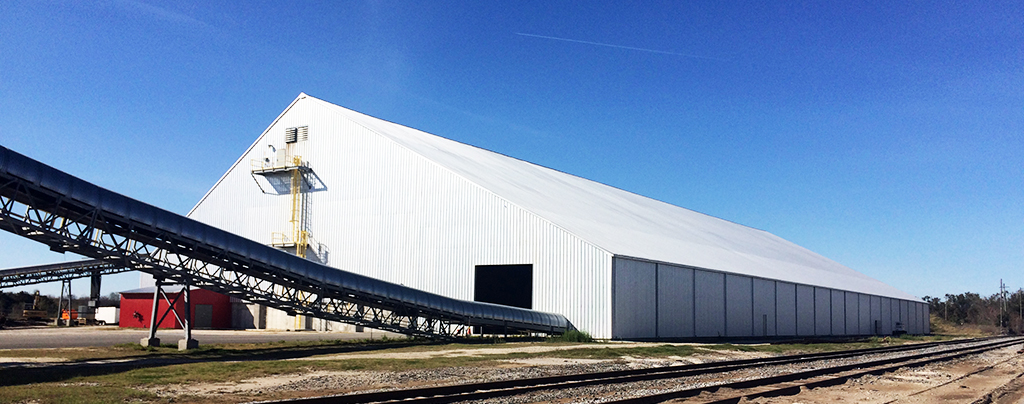Text below originally published in the September/October 2017 print issue of Pellet Mill Magazine: http://biomassmagazine.com/articles/14697/port-investments-in-pellet-handling.
Logistec is one of the largest cargo handling and port logistics companies on Canada’s East Coast, and its U.S. presence is growing. Logistec’s network includes 30 ports and 45 terminals, where the stevedore handles all types of dry- and break-bulk goods and containers. Logistec mainly handles wood pellets in Brunswick, Georgia, and to a lesser extent in Thunder Bay, Ontario, and in Halifax and Sheet Harbour in Atlantic Canada. “The biomass market is an area we want to grow,” says Frank Vannelli, senior vice president of Logistec’s commercial and business development. “Our most significant and recent investments are in Brunswick, where we have committed nearly $40 million to renovating and expanding our facilities.”
In 2011, Logistec began an extensive development project to completely rebuild and modernize its East River Terminal at Port of Brunswick to prepare the site for increased European demand for biomass cargo. “Over the next five years, we renovated the previous warehouses, overhauled the bulk load-out system, constructed a new ship loader, and made significant upgrades to the conveyor systems,” Vannelli says. In 2014, the company reached an agreement with the Georgia Ports Authority to make additional improvements to the terminal. “In addition to the initial expansion, this ambitious five-year upgrade project includes electrical and rail upgrades, new warehouses, a new tower and conveyor, paving, infrastructure rehabilitation, and dust and traffic control measures.”
A year into the upgrade project, a significant fire ravaged the terminal. “The property damage was extensive, but most importantly, no one was hurt,” Vannelli says. “Through our team’s hard work and support from our partners, the terminal is completely rebuilt and we’re back on schedule. Our two new warehouses are expected to help us handle over 1 million tons of export cargo per year.”
Vannelli says Logistec incorporated industry best practices in design and construction of the new pellet warehouses to maximize safety, cleanliness, efficiency and dust control. “The frames are steel and the roofing is made of tin,” he says. “The structure is coated with fire retardant materials and the sprinklers are specifically designed to cover the entire conveyor system.” Contractors Allen & Graham Inc. and Clark Nexsen won an Associated General Contractors 2017 Build Georgia Award for their work on these buildings. Vannelli adds that the professionalism and support from Harold Arnold and the team at Fram Renewable Fuels LLC—a major pellet producer exporting to Europe out of the Port of Brunswick—were invaluable in the terminal upgrades. “They are, in the truest sense of the word, our partner,” he says. Throughout the construction process, Logistec’s project manager was also in regular contact with local fire officials, engineering consultants and the Georgia Ports Authority.
Versatility and adaptability are keys to Logistec’s success, Vannelli says. “Most of our bulk facilities are quite versatile,” he says. “One of our greatest strengths is that we can adapt our operations to the size, scope and specific needs of our customers and partners. Our operations team is very resourceful in cases where we need to adapt existing facilities and storage for specialty cargo.” In one port, Logistec handled bulk wood pellets via a vacant grain silo, Vannelli explains. “We can also handle shipments of specialty pellets as break-bulk in super bags at both ports and inland terminals. And through our container terminal in Montreal—Termont—we are also getting residential pellets to European markets via major shipping lines such as Mediterranean Shipping Co.”
